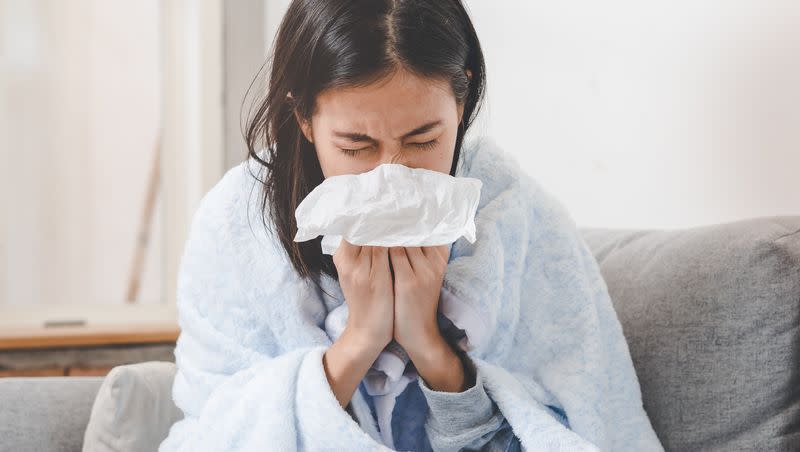Debunking 5 common health myths

Does sitting too close to the television really cause blindness?
Will you lose brain cells if you watch popcorn pop in the microwave?
Can you catch a cold from being cold?
These old wives’ tales and others like them may stem from good intentions, but it’s important to know what is a myth and what is a fact when it comes to protecting your health.
Here are five health myths you might be realizing are untrue for the first time:
Myth No. 1: You catch a cold from being in cold weather
Contrary to popular belief, colder weather does not cause illnesses such as the common cold or flu. It’s what people do when it’s cold outside that causes disease to spread.
During the winter seasons, people tend to stay in closer contact with one another. With more people inside, you are more likely to get sick from germs spread by a cough or sneeze.
“It’s also the time of year when most schools are open, and so children are also in close proximity to each other. It’s also believed that low humidity can cause dry nasal passages, which makes that part of the body more vulnerable to these types of viruses,” per Babylon Health.
Even though the cold temperatures aren’t making you sick, they likely make you want to spend more time inside, which can cause an increase in winter illness if you’re in crowded spaces.
Myth No. 2: Cracking your knuckles makes them larger
Growing up, my grandpa was known for having thick and tough hands. I’ll never forget the fear instilled in me as a child when my older sister told me I would have hands like my 70-year-old grandpa if I cracked my knuckles. It turns out that she was wrong.
“Cracking your knuckles doesn’t cause harm, so it shouldn’t be painful, cause swelling, or change the shape of the joint,” according to Healthline. However, the article noted that if there is pain, you should seek medical attention.
There’s also a common belief that you can get arthritis from cracking your joints, but it’s also untrue.
When you pop your knuckles, it is actually “bubbles bursting in the synovial fluid — the fluid that helps lubricate joints. The bubbles pop when you pull the bones apart, either by stretching the fingers or bending them backward, creating negative pressure,” per Harvard Health.
Although there is no risk of arthritis, Harvard Health advised breaking the habit because it can lead to reduced grip strength as you age.
Myth No. 3: Vaccines can cause autism
The idea that getting a vaccination can be linked to contracting autism spectrum disorder is a myth. According to the Centers for Disease Control and Prevention, multiple studies have proven that there is no correlation between the two and that promoting this belief could cause real harm to certain individuals.
“Preventing the protection provided by vaccination or administration of mercury-chelating agents may cause real damage to autistic individuals and to innocent bystanders who, as a result, may be exposed to resurgent diseases that had already been ‘extinguished,’” the CDC said. “That such myths flourish is a consequence of the authority of scientific evidence obtained by scientific methodology losing ground to alternative truths and alternative science.”
Related
Myth No. 4: Swallowed gum will stay in your body forever
Have you ever heard that if you swallow gum, it'll stay in your body forever? What about just for five years? Well, don’t worry, neither of these claims are true.
“Swallowed gum does not stay in the stomach or cause intestinal problems. That’s because our bodies move most materials that can’t be digested (like gum) through the digestive system and out of our bodies in a bowel movement,” per Nemours Teens Health.
According to the Mayo Clinic, “(Gum) moves relatively intact through your digestive system and is excreted in your stool. On very rare occasions, large amounts of swallowed gum combined with constipation have blocked intestines in children.”
Myth No. 5: Food has a ‘5-second-rule’
Is food ever safe once it’s touched the floor? Is there a time limit under which bacteria won’t cling to food on the floor?
While it is true that the shorter the food stays on the floor, the less bacteria gets onto it, the five-second rule may not be as accurate as you think it is.
“The 5-second rule has become such a part of our culture that scientists actually tested it. ... The ‘rule’ is mostly myth: Bacteria can attach to food even if you pick it up super fast. So, depending on which types of bacteria happen to climb on board, you could still get sick,” per Johns Hopkins Children’s Hospital.
